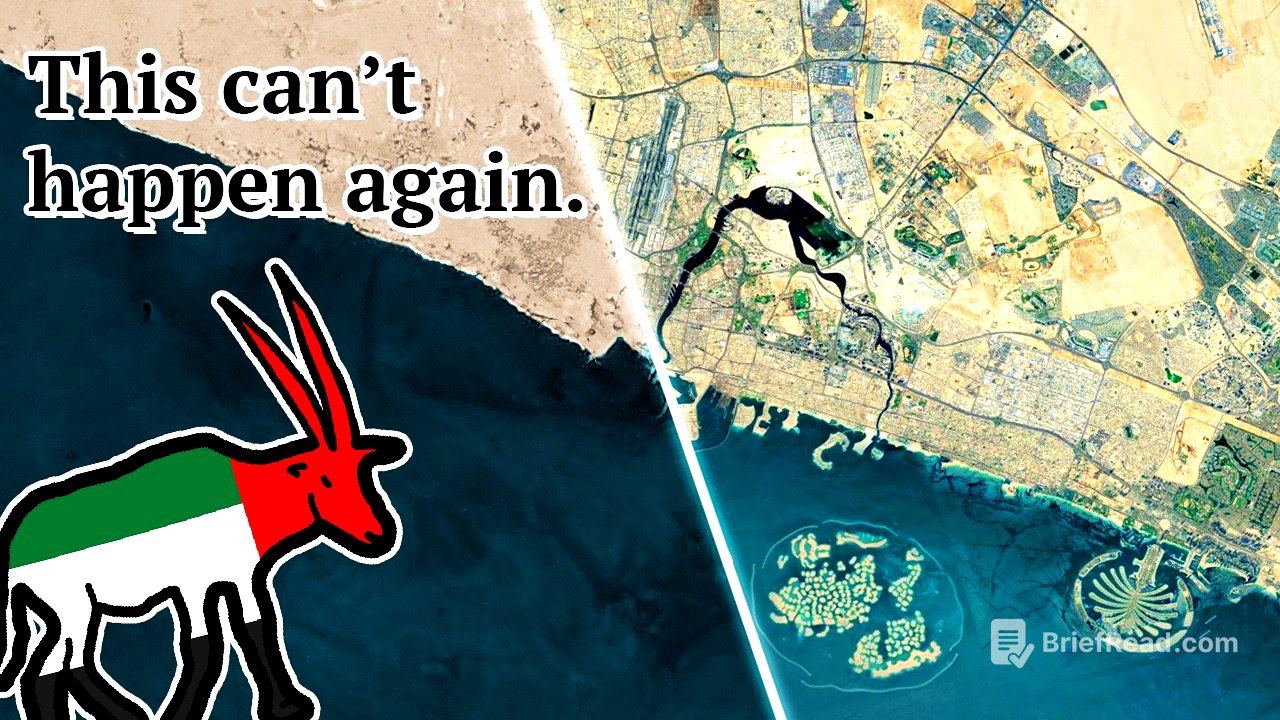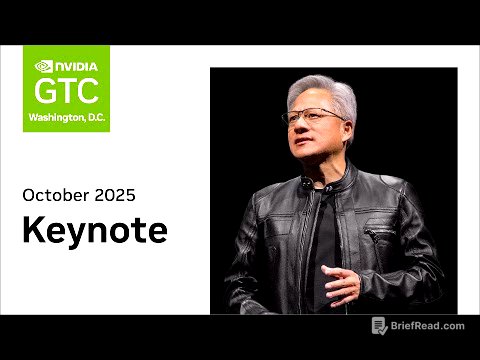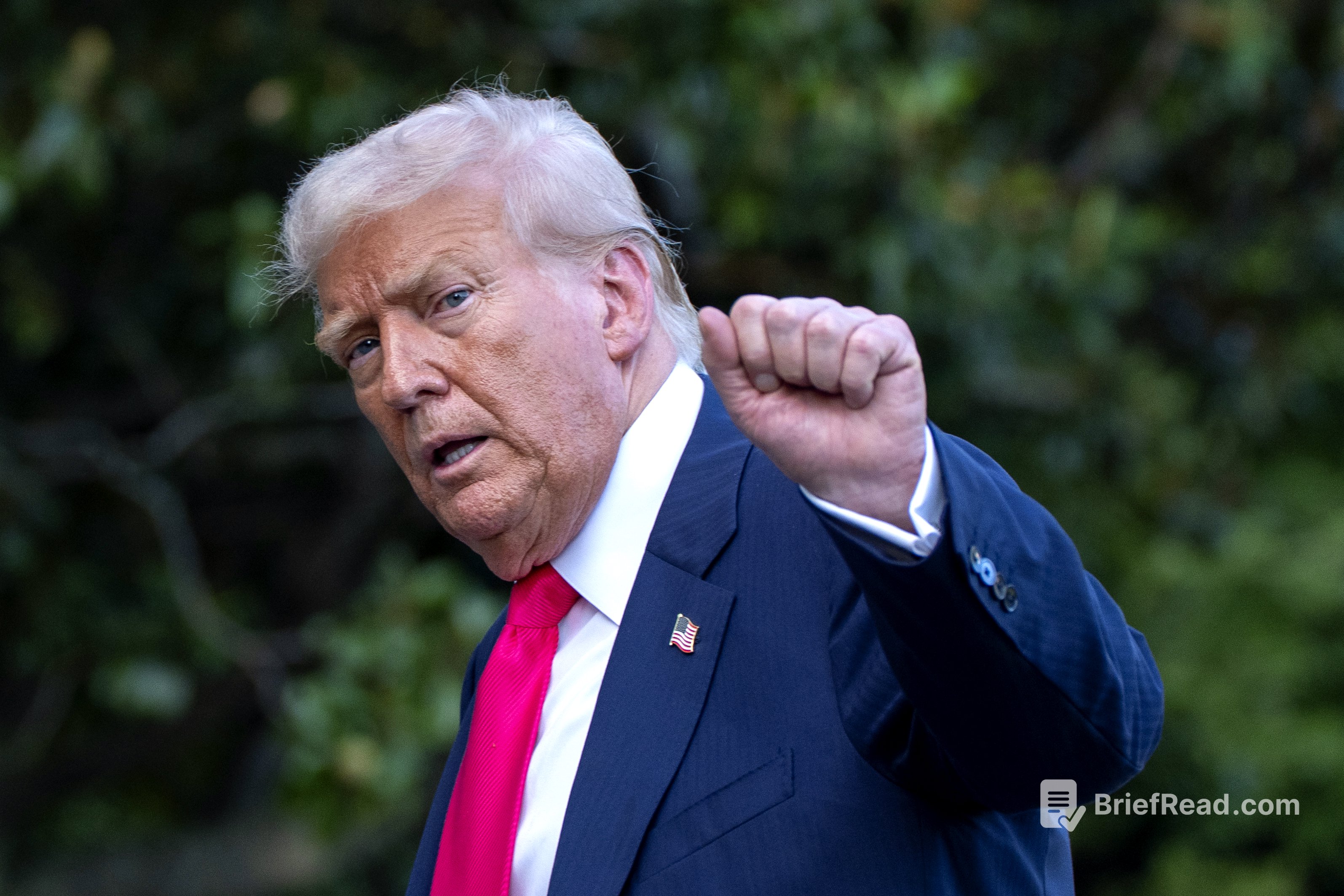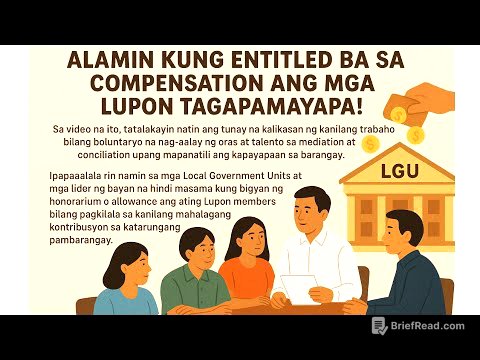TLDR;
This video explores the economic miracle of Dubai, examining its unique development model and the attempts by other countries to replicate its success. It clarifies that Dubai's wealth isn't solely based on oil, but rather on strategic economic diversification, free trade zones, and attracting foreign investment through a hyper-libertarian approach. The video also highlights the significant role of real estate development, the influence of the ruling family, and the challenges faced by other cities trying to emulate Dubai's model.
- Dubai's economic success is attributed to diversification, free trade zones, and foreign investment, not just oil.
- The city's development is heavily influenced by the ruling family, particularly through real estate.
- Many attempts to replicate Dubai's model fail due to lack of investment, infrastructure, and genuine stakeholder commitment.
Dubai's Economic Miracle [0:00]
Dubai is presented as an economic miracle, often compared to countries like China and Poland. Despite its image, Dubai's wealth isn't primarily due to oil. The city is praised for its economic diversification, having reduced its dependence on oil. While Dubai was significantly poorer when it relied on oil, its growth in other industries propelled it to become a central hub in the Middle East. Dubai's oil reserves are not as substantial as commonly believed, and most of the UAE's oil is located in Abu Dhabi.
The Formation of the UAE and Dubai's Autonomy [1:47]
The United Arab Emirates was formed in 1971 when British forces left the region. A key aspect of the UAE's early history was balancing power between the federal government and individual emirates, especially regarding energy resources. While Abu Dhabi holds the majority of the UAE's oil, its ruler, Sheikh Zayed, ensured that oil revenues would benefit all emirates, funding infrastructure development across the country. Dubai, as part of the UAE, maintains significant autonomy, particularly in creating free zones and developing its infrastructure.
The Rise of Free Zones and Real Estate Boom [3:38]
Dubai's history as a free city for Arab and Persian traders dates back to 1901, fostering regional trade and re-exports. This openness is a key factor in Dubai's wealth, with numerous free zones established in the early 2000s. These zones allow 100% foreign ownership, free import and export of goods, and zero taxes, attracting significant foreign investment. The Dubai International Financial Centre (DIFC) is particularly important, operating its own court system modeled after English common law. Dubai's real estate sector significantly boosted its economy, especially after 2004 when foreigners were allowed to fully own property.
The Role of the Ruling Family in Dubai's Development [8:35]
Development in Dubai is closely tied to the government and the royal family. The ruler of Dubai since 2006, Mohammed bin Rashid (MBR), is himself a billionaire real estate developer. Key positions in the city's development authorities are held by his sons and nephews. Emaar Properties, the largest real estate developer in the city, is closely linked to MBR, with its largest investor being Dubai's sovereign wealth fund. The CEO of Emaar has stated that he consults with MBR on all major decisions.
Dubai's Economic Model and Attempts at Replication [10:55]
Dubai's economic success is attributed to financial globalization, with properties serving as a haven for overseas cash. The city's physical development is government-led, while attracting global businesses follows a hyper-libertarian approach. Many cities attempt to replicate Dubai's model by reducing business regulations, allowing foreign control of assets, and offering tax incentives. Examples include Gujarat International Financial City in India, Port City Colombo in Sri Lanka, Batumi in Georgia, and Eco Atlantic in Nigeria.
Challenges in Replicating Dubai's Success [14:30]
Many attempts to replicate Dubai's model fail due to insufficient investment and a lack of genuine commitment. Projects like Eco Atlantic in Nigeria and Acon City have not materialized despite promises of significant investment. For a city to succeed, it needs to be built with stakeholders who have a vested interest in its success. Dubai's growth is driven by the city's ruler, who gains legitimacy based on the city's rapid development. In the 21st century, the incentive to be a free city and capture global financial flows has never been greater.









